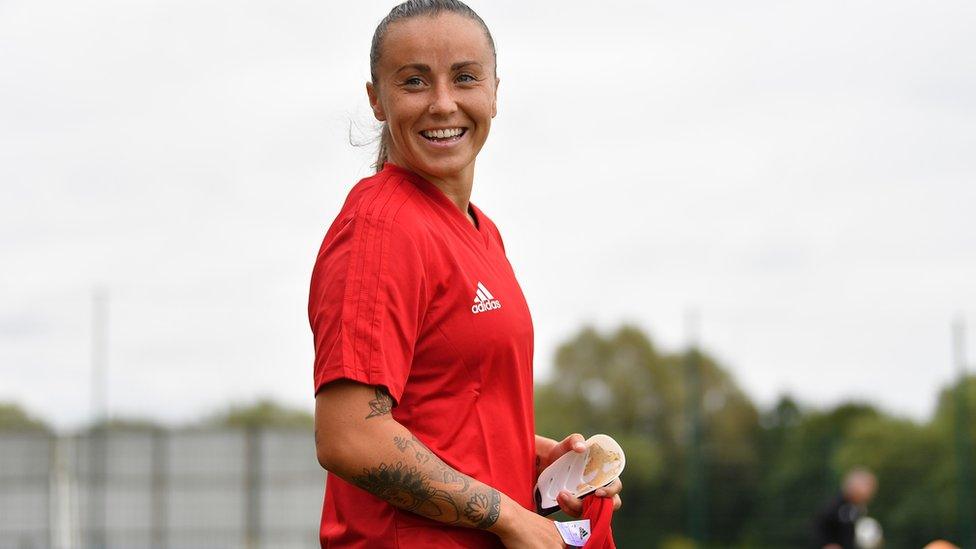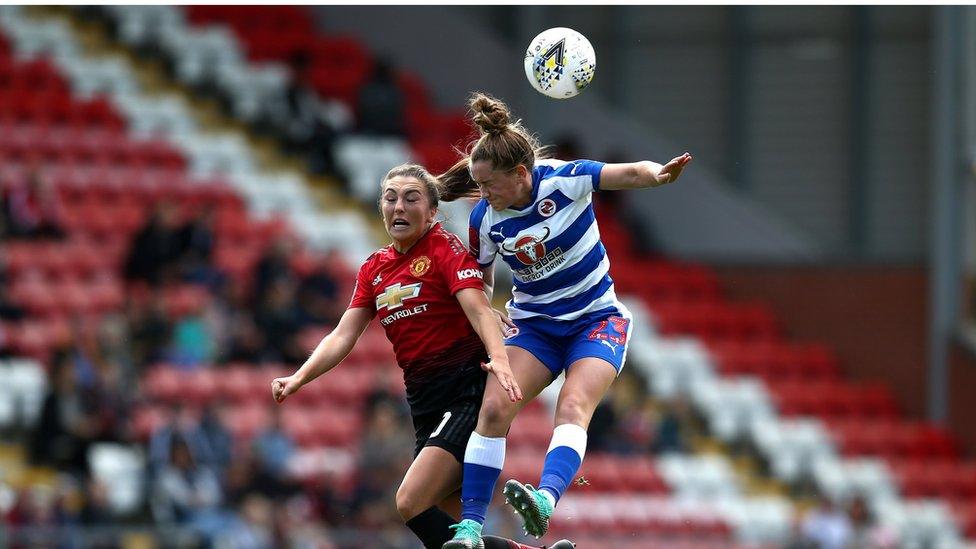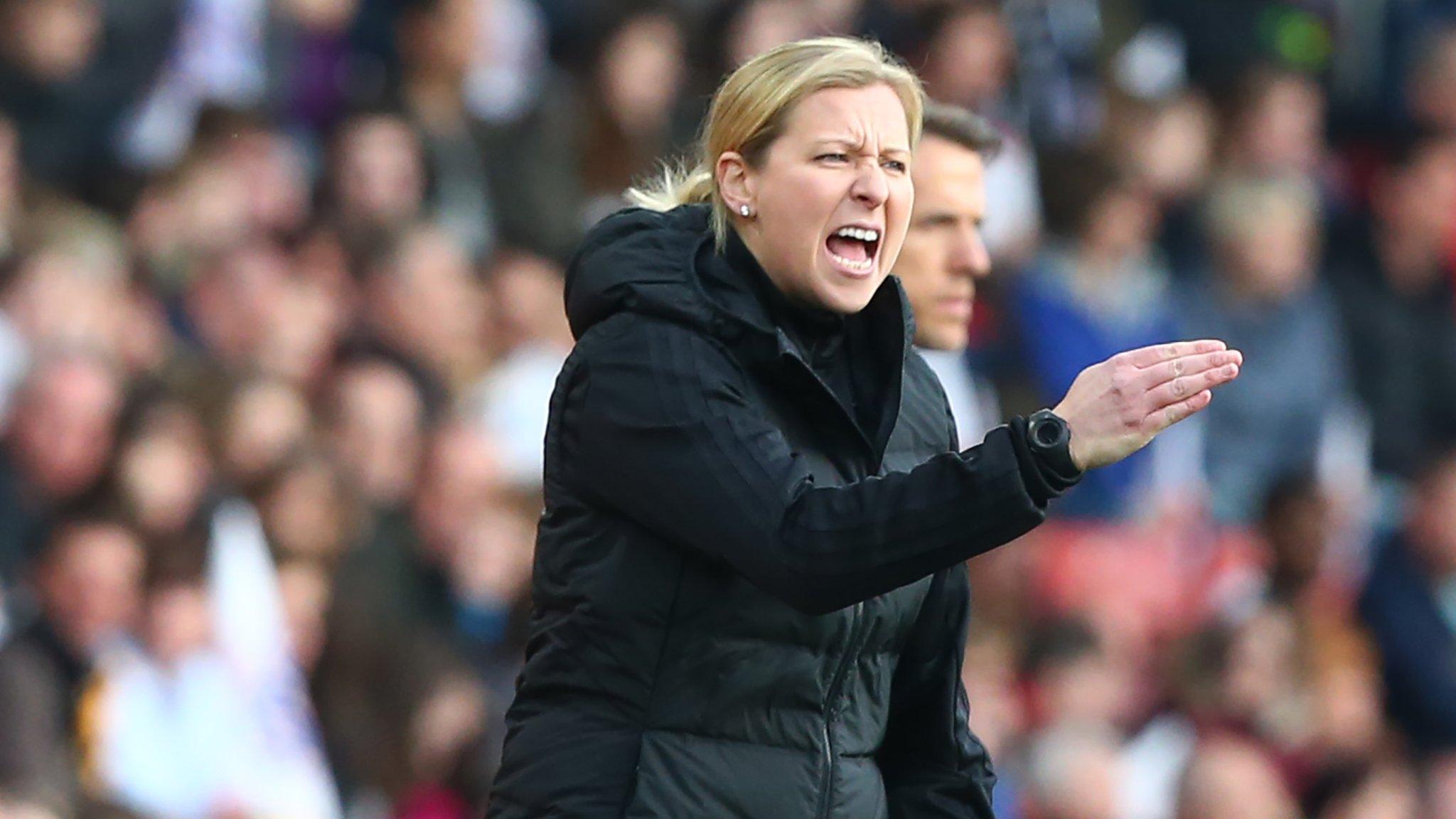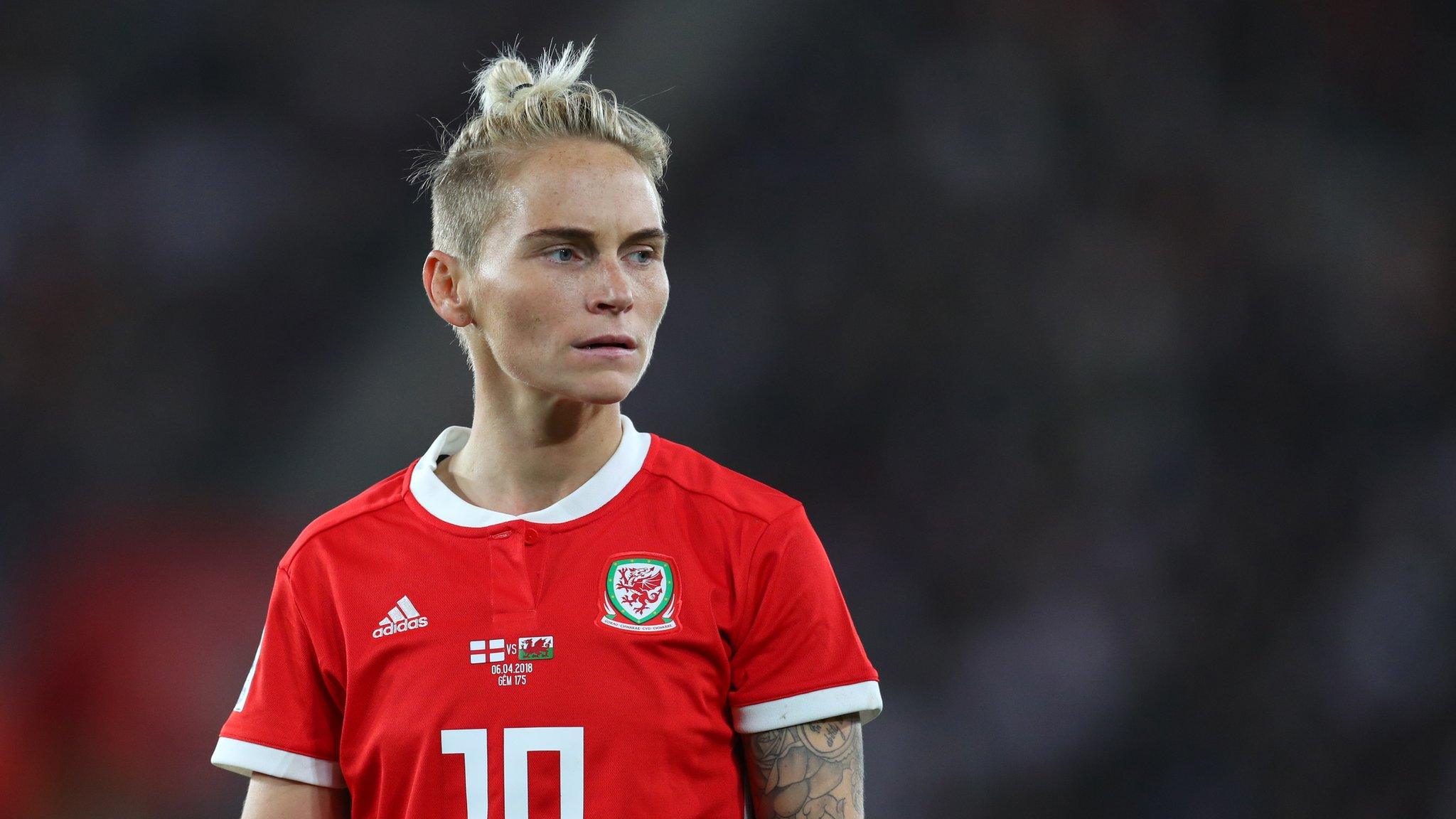Wales women 'can spark more pay' for female footballers
- Published

Natasha Harding hopes that Wales' sell-out game will spark change in how women footballers are treated
Women footballers need better pay so more can play professionally in the future, a top Wales player has said ahead of a crucial game.
Winger Natasha Harding said while women would not earn the same as men, they needed to be paid more.
A recent survey showed 88% players in the Women's Super League (WSL) - England's top tier - earned less than £18,000 per year.
Wales face England for a crucial World Cup qualifier on Friday night.
The game, which sold out in just 24 hours, will be the largest attendance for a Wales Women's home match, with 5,000 fans expected at the match at Rodney Parade in Newport.
The Wales squad say they hope they can inspire the next generation
A win would see the team qualify for the World Cup in France next year, which would be the first time a women's team from Wales has ever reached a major tournament.
"We've made history before we've done anything," said 29-year-old Harding, who has played in the WSL for Liverpool as well as her current club Reading FC.
While she plays professional football full-time, some female players have to hold down other jobs alongside their training.
Helen Ward on football after childbirth
Wales' all-time record goal scorer Helen Ward, is a mum-of-two, as well as working as a football pundit and playing for Watford FC Ladies.
Harding now hopes the crunch match will be a catalyst for change and pave the way for more young women being able to become professional footballers.
"I'm not going to sit here and say they will get the same as men because they won't, that would be unrealistic," she said.
"But hopefully there'll be more opportunities for female footballers to be professional, to just have this as a job."
Out of the current 20 Wales squad members, 12 are full-time footballers, six are students and one player works full-time in recruitment.
Brighton and Hove Albion forward Kayleigh Green, who scored two goals in the World Cup qualifier against Russia, is also a qualified plumber.

How much do women footballer's earn?
The first world study of working conditions in women's professional football found that 88% of Women's Super League, the top tier in England, players earn less than £18,000 per year
A report by Fifpro, the World Players' Union, last December, also revealed 58% have considered quitting for financial reasons, and 30% combine their career with another job
More than a quarter of players (26%) in the WSL say their club does not cover the cost of expenses

'Why can't little girls think they can be a footballer?'

Rachel Rowe (right) in action for Reading against Manchester United
Rachel Rowe, 25, has been a full-time footballer for nearly three years.
But the Reading and Wales player previously had to juggle training and matches around working for the prison service and her business administration apprenticeship with the Welsh Government.
"I worked in Swansea and I travelled two-and-a-half hours to train twice a week and I'd do it on a match-day," she said.
"Everyday I would get back at one in the morning and I'd have to go back into work and work a nine hour shift, but it was worth it.
"I got to the end of the season and I was ruined but then the luxury is we won the league, we got promotion and I got offered a full-time contract."
"Why can't little girls think they can be a footballer?", she added.
Rowe said while there was still "a long way to go" she thinks there are now more avenues for women to play the game full-time.
The Wales v England match will be shown live on BBC Two and BBC Two Wales and BBC iPlayer, Friday 31 August, kick off 19:45 BST.
- Attribution
- Published9 August 2018

- Published10 November 2017

- Attribution
- Published4 June 2018

- Published8 December 2016
